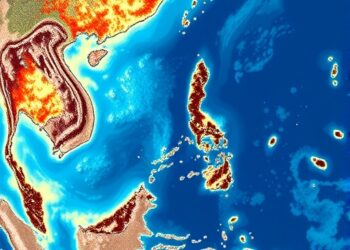Warming waters and nutrient overload: a dangerous combination threatening our rivers and lakes
Warming waters and nutrient overload: a dangerous combination threatening our rivers and lakes
·The effect of rising water temperatures on ecosystems is likely to interact with pre-existing pressures, such as excess nutrients from pollution, resulting in a dangerous combination, according to a new study.
·New international research, conducted by the University of Sheffield, University of Oxford, University of Savoie Mont Blanc and the French National Research Institute for Agriculture, Food and the Environment, found that food webs are becoming less complex in warmer, nutrient-rich waters
·This simplification means shorter food chains and a degraded functioning ecosystem
·The urgent global need to reduce river pollution levels was recognised internationally when Olympic open water swimming events, due to take place in the Seine river in Paris, had to be postponed due to harmful bacterial levels
Warming water temperatures and increased nutrient levels are putting freshwater ecosystems at serious risk, new research has revealed.
Scientists previously thought warming temperatures caused by climate change and increased nutrient levels due to pollution might offset each other’s impact on aquatic life. However, a new study has shown warming waters and nutrient overload is a dangerous combination threatening our rivers and lakes.
The research, conducted by an international team of scientists from the University of Sheffield, University of Oxford and University of Savoie Mont Blanc and the French National Research Institute for Agriculture, Food and the Environment, examined hundreds of lakes and streams, analysing the complex relationships between fish species.
Researchers found that food webs, the intricate networks of who eats who, are becoming less complex in warmer, nutrient-rich waters. This simplification means shorter food chains, and an ecosystem with a degraded functioning. Top predators are particularly vulnerable to these changes, but they are essential to the functioning and the stability of ecosystems.
Less than three per cent of the water on our planet is fresh, yet freshwater habitats are home to almost 10 per cent of all known animals and almost half of all known fish species. Freshwater ecosystems not only help to maintain water quality of the land and sea, but also allow wildlife such as eels and salmon to travel vast distances to complete their life cycles, and act as conveyor belts transporting nutrients that make soil good for growing food.
The far reaching impact of the need to reduce pollution levels in our rivers was felt globally when the Olympic open water swimming events such as the triathlon, due to take place in the Seine river in Paris, had to be postponed due to harmful bacterial levels. The study highlights that this need is even more urgent with the rising impacts of warming of climate change, but it also suggests that reducing pollution levels is a promising path to mitigate the impacts of climate change.
Alain Danet, Postdoctoral Research Associate at the University of Sheffield and co-first author of the study, said: “The eyes of the world have been on the Seine River this summer due to the Olympic Games. The challenges faced in Paris demonstrate how important it is to reduce the pollution levels in our rivers and lakes not only for our own health but for the health of our ecosystems.
“Our rivers, lakes, wetlands and underground water supplies store and clean the water that’s crucial for people and wildlife. From providing drinking water to providing essential resources to terrestrial and marine ecosystems, healthy freshwater systems are essential.
“These vital ecosystems also protect us from flooding, filter pollution and support countless plants and animals.”
Willem Bonnaffé, Postdoctoral Research Associate at the University of Oxford and co-first author of the study, said: “Lake and river creatures are like the kidneys of our planet. They clean water and prevent blooms of poisonous algae and bacteria. Keeping them safe is keeping us safe.
“Climate change and pollution are not isolated problems for our rivers and lakes, as scientists previously believed. Our study has found they interact in complex ways that threaten the balance of life in our waters.
“By reducing greenhouse gas emissions and improving water quality, we can help safeguard the health of our rivers and lakes for future generations.”
Camille Leclerc, Postdoctoral Research Associate at the French National Research Institute for Agriculture, Food and the Environment and co-first author of the study, said: “This important research has shown what a dangerous combination warming waters caused by climate change and increased nutrient levels caused by pollution are.
“More positively this study shows that if we can reduce the pollution in our lakes and rivers, it will better protect them against the effects of climate change and warmer waters.”
To view the full paper published in the journal Ecology Letters, please visit: https://onlinelibrary.wiley.com/doi/10.1111/ele.14480
Ends
Contact: For more information please contact: Amy Huxtable, Senior Media Relations Officer, University of Sheffield, 0114 222 9859, a.l.huxtable@sheffield.ac.uk
Journal
Ecology Letters
Method of Research
Data/statistical analysis
Subject of Research
Not applicable
Article Title
The interaction between warming and enrichment accelerates food-web simplification in freshwater systems
Article Publication Date
2-Aug-2024




